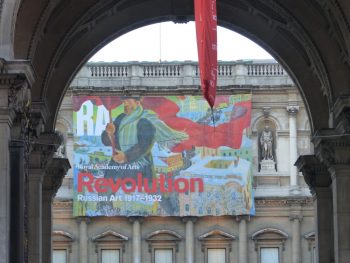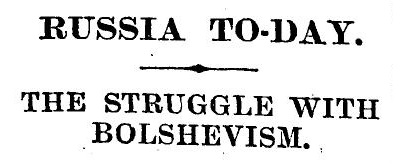We are developing the social individualist meta-context for the future. From the very serious to the extremely frivolous... lets see what is on the mind of the Samizdata people.
Samizdata, derived from Samizdat /n. - a system of clandestine publication of banned literature in the USSR [Russ.,= self-publishing house]
|
A quote attributed to USAF Colonel Frank Borman, the oldest living astronaut, businessman, one of the first men to orbit the Moon. He sounds like a splendid chap. This ‘b’ word is of course, is anathema to many in the political elite, as RBS limps on after a decade of State support, and many of the forecasting errors of a decade ago remain unliquidated. As others have noted, just as when a tree falls the light let in through the canopy allows new blooms.
But coming back to our hero, he has recently given an interview on his impressions of his time as an astronaut. He seems to be have set a high bar to be impressed.
“When asked if it was ‘cool’ to fly around weightless, Colonel Borman replied: ‘No.’
He said it was interesting to watch ‘maybe for the first 30 seconds, then it became accepted.’
And Colonel Borman denied ever saying he thought a poet should have been on board.
He said: ‘No, I didn’t- if I did, I didn’t- the last thing I would have wanted on our crew was a poet.’
Mr Cassius Clay, you were not the Greatest. As for the Moon:
He described the Moon as ‘devastation’ and said it was: ‘Meteor craters, no color at all. Just different shades of gray.’
And Colonel Borman revealed he had no desire to step foot on the Moon, as Buzz Aldrin did seven months later.
He said: ‘I would have not accepted the risk involved to go pick up rocks. It doesn’t mean that much to me.’
‘Somebody else wanted to do it. Let them take my place. I love my family more than anything in the world.’
Well, perhaps NASA could ask him to compare the Moon with Detroit?
As he said, he loved his family.
‘The dearest things in life that were back on the Earth- my family, my wife, my parents.’
‘They were still alive then. That was, for me, the high point of the flight from an emotional standpoint.’
‘The dearest things in life that were back on the Earth- my family, my wife, my parents.’
‘They were still alive then. That was, for me, the high point of the flight from an emotional standpoint.’
And the mission itself?
Lovell was mesmerized by space and exploration, and wanted desperately to explore the moon. I was there because it was a battle in the Cold War.
‘I wanted to participate in this American adventure of beating the Soviets. But that’s the only thing that motivated me- beat the damn Russians.’
Would he run in 2020?
On 3 September 1939 the United Kingdom and France declared war on Germany. But we are in no danger of forgetting that.
When did you last think about Beslan?
There has been, as we know, much fuss over how Russian Twitter ‘bots backed both Brexit and Donald Trump. This is an interference with our democracy which just cannot be lived with, something must be done. You know, regulate Twitter so that nothing so appalling as anyone ever using it to support non-progressive causes can ever happen again. That not being quite how free speech nor freedom of the press is supposed to work of course.
Expect some of this to die down a little now that we know that those same Twitter ‘bots – from Russia, you know – backed Jeremy Corbyn at the last General Election.
– Tim Worstall
Some questions:
Was there a chemical attack?
If so, who was the perpetrator?
More to the point, do we care? Yes, I know there is a treaty and all that but is chemicalling someone so much worse than shooting them? And is it worth fighting a war over?
Under these conditions, you could make people believe the most fantastic lies one day, and if the next day they were presented with irrefutable proof that their leaders had lied, they would take refuge in cynicism: they would protest that they had always known they were lies, and admire their leaders for their superior tactical cleverness. (‘The Origins of Totalitarianism’, Hannah Arendt)
Arendt states that ideology and terror are two sides of the same coin, preparing people for their two-sided role as persecutor or victim in a totalitarian state. She never quite says – but it is close to the surface in several remarks – that cynicism and gullibility are likewise two sides of the same coin, not opposites at all, preparing people for their two-sided role as liar or dupe in enforcing political correctness.
Jeremy Corbyn does not trust the UK’s forensics and wants the nerve gas sent to Russia for their analysis. Mr Ed may be right that Corbyn’s reported statement – that “the nerve agent be sent back to Russia” – reveals his true opinion, but the boy who came from a posh-enough background and attended a grammar school, yet still managed to leave it with two Es, is quite thick enough both to reveal an unconscious assumption and to believe his conscious words. Jeremy is too cynical to credit UK forensics – so he wants Putin’s people to examine the evidence and announce whether Putin did it or not. (One might guess he likewise thinks reports of Russian athletic doping are western lies – after all, Putin’s experts say so – and be even more sure he thought that in the days when the ‘peoples republics’ won many an olympic medal. But perhaps even Jeremy is not rash enough to say so – there are voters who ignore politics but understand sport well enough. 🙂 )
Scepticism can be very healthy (this blog has always had a very healthy number of eurosceptics 🙂 ). But when you want to believe the forensic analysis of the Russian state because you are too cynical to believe the forensic analysis of the British state then you have indeed demonstrated Arendt’s point: cynicism and gullibility are not opposites. The precise evidential value of the UK’s ongoing forensic tests can be debated. The evidential value of anything announced by Russia, were Corbyn’s idiot demand acted on, cannot be.
[Corbyn’s] Shadow Foreign Secretary Emily Thornberry and his Shadow Defence Secretary Nia Griffith both saw that briefing and agreed there was “prima facie evidence” and said the party “fully accepts that Russia is responsible”.
Corbyn said he didn’t trust British scientists and British intelligence services, and suggested samples of the nerve agent be sent back to Russia because he DID trust them and Russia had asked to see the evidence.
– Fleet Street Fox
The article is ‘all over the place’ regarding the USSR (to be charitable) but it does make this rather good point.
Amidst some of the commentary about the recent murders – attributed by the UK government to Russian operatives – in the UK, much has been written and said about the less-than-stellar response, in the eyes of many (including those on the political left) of Jeremy Corbyn. Now, my take on Corbyn is rather like that of George Orwell on leftist intellectuals (he was one of them, mind), which is that they’d sooner be caught stealing from a church charity plate than admitting they loved their country.
Even so, it is worth asking the question of quite why certain folk on the left are so beguiled by Russia. After all, in certain respects Putin is not their kind of hero. For a start, he is quite a “man’s man”, strutting about bare-chested, holding guns and riding horses; his regime isn’t nice to homosexuals, seems to extract a lot of CO2-producing gasses, and so on. There are no “safe spaces” in Russian schools and universities, I would guess.
However, it is worth noting that there was never really a time when the situation, particularly post-1917 and up to the fall of the Berlin Wall, was better. And this Daily Mirror writer comes up with a comment so flawed that for a second I thought it was some sort of parody. For the writer (adopting a sort of pen-name) suggests that poor old Corbyn is besotted with the shining image of a glorious Soviet Union that once – in the writer’s opinion – existed in its early years before certain things, inexplicably, went wrong. It had “free” healthcare, employment “rights” and a nifty big public sector. And it was egalitarian! The writer appears to buy this rosy view of Soviet Russia (the fact that opponents of Communism were murdered from day one appears not to register). The writer does not note the most important divide of all: the split between those who have power, and those who don’t, over others. The inequality in wealth of early 21st Century America or Europe is nothing compared to the inequality between the party bosses in, say, 1950 and that which exists in wealth terms in a Western liberal democracy. Wealth and coercive power are entirely different things.
The things that went wrong in the Soviet Empire were integral the very nature of collectivism itself; failure to understand that wealth inequality is entirely different from differences in coercive power is at the root of why leftists, and collectivists of all hues, get things like the Soviet Union wrong. The project was doomed because its underlying rationale was built on sand. (Here is a new and acclaimed biography of Lenin, making the point that what was set up in Russia was evil and mad from the start.)
So far from being an incisive takedown of Corbyn, the Daily Mirror article sort of affirms his infatuation with communism and says the main problem now is that Russia is run by thugs, as if what happened from 1917 onwards was ever going to be any different. When power is centralised, what does this writer expect will happen? And perhaps it is fitting to conclude that anyone who wonders “where did the dream of Soviet Russia go wrong?” should sit down with this 1944 masterpiece by a certain FA Hayek.
The basic facts are given in this Wikipedia page: Poisoning of Sergei and Yulia Skripal, and there is a BBC “What we know so far” piece here. I keep hoping to read somewhere that they are beginning to recover. I keep not doing it.
What should the UK government do? What do you think about the measures it has taken so far?
Here are some opinions from several different points of view to get you started:
What can Theresa May do about Russia over the Salisbury poisoning? – Dominic Waghorn, Sky TV.
After the Skripal attack, talk of war only plays into Vladimir Putin’s hands – Simon Jenkins in the Guardian.
Alex Salmond: Don’t shut down my TV show over spy attack – Andy McLaren, STV News.
This posting may not see the light of day until tomorrow, or worse, because this evening I have a date at Chateau Samizdata to see in the New Year. But, I will now try to get it posted before the end of the year that it is retrospectively about. And yes, it’s one of those month-by-month photo-postings, one photo for each month.
Unlike, say, Michael Jennings, I not only live in London but spend almost all of my time in London, and I spend a lot of that time wandering about in London, taking photos of London’s architecture, of its adverts, of its other photographers, and of its many other oddities, such as this one:

I love to discover out of the way spots in London, spots that others don’t know about, but which, if they did, they might enjoy greatly, almost as much as I do. That strange and rather funny sculpture (be patient with this link (to my personal blog) – I do believe it worth the wait), which I photoed in January of 2017, is to be found beside the River Lea, just before it does a kink on its way south. It’s a hard place to describe, because if you look on Google Maps there is little of note in the area. The best I can do is to say that to get to this place, I went to Bromley-by-Bow tube station, went east across the River Lea and then went south, past big warehouses, of the sort that have become so important in this age of computerised shopping. There’s a big Amazon shed there, for instance.
The above sculpture concerns itself with the more regular sort of shopping, and what with it being the work of an artist, she thinks that it criticises such shopping. Materialism, the badness of capitalism, consumerism, blah blah. But to me it looks more like a celebration of shopping. Whatever it “is”, I like it.
Next up, a photo which notes the fact that exactly a hundred years ago from this year, there was that Revolution, in Russia. I didn’t visit the exhibition that this poster advertises, because I feared that too many of the exhibits would be celebrations of that disastrously destructive event, and would hence annoy me. But I did photo the advert:

Thank goodness for the movie The Death of Stalin, which came out later this year, and which I did see. That is very comical, but it is anything but a celebration of Soviet communism. The horrors are not wallowed in photographically, but they are portrayed, in the form of the terror felt by all those who had anything to do with Stalin, and in the form of all the absurd events that Stalin’s most casual instructions were liable to set in motion. Although I promise nothing, I hope to be writing more here about that movie.
March, and more politics, this time in the form of a big anti-Brexit demo that I chanced upon, in Parliament Square:

It’s tempting to mock this demo as a complete farce. It happened, after all, several months after the Brexit referendum had yielded its result. But although a demo like this attracts little public notice, given that the vote it denounced was, you know, a vote, such demos do still accomplish quite a lot. There is more to politics than mere voters merely voting. Demos, much like indoor meetings (of the sort I continue to hold every month in my own home), strengthen the personal relationships which add up to a political movement, and draw more adherents to the cause, whatever it is. Thanks to this effort, and many other less photogenic efforts, the anti-Brexiteers have been able to put all sorts of political barriers in the way of Brexit, to spread all sorts of doubts in the minds of waverers. I still don’t think they will accomplish their central goal, but they are putting up quite a fight.
→ Continue reading: My 2017 in London photos
I suppose – given that it is the centenary of that catastrophe known as the Russian Revolution – I ought to drag out something from The Times. I have to confess that this is no easy task; not because there is too little but because there is too much. Anyway for your intellectual delectation we have the following selection: the initial report (8/11/17), a background report (9/11/17) and The Times leader (same date) which gets it pretty much spot on:
The latest developments in Russia will hardly surprise those who have watched recent events in Petrograd. When constituted authority is palpably incapable of backing words by deeds, when anarchy is allowed to increase daily, when arms are recklessly given to the mob, then the end cannot be far off.
Update One more (9/11/17 again) but this one comes with a free Balfour Declaration
Not late news, but a film review. The Death of Stalin opened recently across the UK. It is an excellent black comedy, 5 stars. The film opens with a musical performance for Radio Moscow, Stalin likes it, and asks for the recording. There is none, so, in true Soviet style, the recording is ‘faked’ by the terrified producer, who resorts to desperate measures. The backdrop to this is nightly NKVD raids, roaming through apartment blocks with the citizenry knowing what to expect, Beria adds his own touches to the minutiae of the raids. We see Stalin’s inner circle, all desperately keeping track of what they have said, and striving to please their master.
Then Stalin collapses, with a little sub-plot device thrown in. Beria is the first to find him, and gets his head start on the race for power. The others in the Praesidium arrive, and the plotting begins. Efforts to get a doctor for Stalin are complicated by the consequences of the Doctors’ Plot, with the NKVD rounding up whoever they can find instead. But it becomes clear that Stalin is in a terminal condition and he then dies.
It should be noted that the film is by the writers of The Thick of It, something, not having a TV, I have never seen, but it has the flavour of a much coarser version of an Ealing Comedy. Beria’s raping and torturing is a major theme, and anyone who sits through the first 15 minutes should by then be under no illusion about the nature of the Soviet Union and socialism. Another excellent aspect of the film is the use of various accents, Stalin is a cockney (perhaps he should have been Welsh, an outsider, emphasising his Georgian origins). Zhukov a bluff Lancastrian (or Northerner), Malenkov and Khrushchev have American accents.
Malenkov, who behaves more like a Principal at a minor East Coast University, seems blissfully unaware that his revolutionary colleagues are actually real murderers. He is nominally in charge of the country and the plotting begins. Beria wishes to start a liberalisation for his own reasons, Khrushchev is put in charge of transport and is lumbered with the funeral arrangements, much to his disgust. Stalin’s son, Vasili, appears on the scene, coming over as a spoilt lunatic. He plans to make a speech at his father’s funeral, which is reluctantly agreed to. Svetlana, Stalin’s daughter, frets over her future. Khrushchev and Beria both promise to protect her. Molotov, played by Michael Palin, is still the Old Bolshevik, totally loyal to the Party, and still regarding his beloved wife as a traitor after Beria gets her released from prison. Eventually, he comes round to support the others against Beria, who has done a Robespierre and shown his hand against his rivals. An excellent Marshal Zhukov plays a decisive role in the final confrontation with Beria, after the competing plans for the funeral arrangements lead to an embarrassing massacre by the NKVD. At the final trial, numerous allegations of sexual abuse are made, a curious echo for our times.
It is hard not to laugh throughout the film, and yet the relentless nature of the evil of the Soviet State is laid bare for all to see, with torture and terror common. It is fairly accurate to what we know of those events, and whilst one might wonder why if the NKVD is so powerful Beria did not simply arrest everyone, it does not and need not show the full picture of the what checks there were on his power, such as the Peoples’ Control, and the Party/NKVD/Army balance. The film credits also acknowledge the tax shelter of the Belgian Federal government.
Every one who voted Democrat, Labour, Green or SNP should watch this film, for a bit of nostalgia and to dream of the future. Everyone who did not support any of them should watch it and be grateful that they are not in total control, for now.
This quotation comes from an article entitled “Russia To-day”; not words one normally associates with accuracy:
Perhaps the advent of Bolshevik Government is a necessary evil. It may be an indipensable ordeal through which Russia must pass before the bulk of the people realize the fact that the Bolsheviks are the real counter-revolutionaries, who are doing their best utterly to ruin the country, and are working hand-in-glove with the enemies of Russia and the secret agents of the old regime. But we know enough about the Bolsheviks to realise that methods of peaceful suasion will never rid the country of ther evil sway. There is only one remedy against them. M. Kerensky indicated it when he asked General Korniloff to send a cavalry division to Petrograd “to subdue the Maximalists.” The proverbial “whiff of grape-shot” is the only medicine, and until it is administered in the proper dose the present situation will continue.
But of course it wasn’t.
There is a lot to get ones teeth into here. I mean there’s the obvious point that the Bolsheviks really did “ruin the country”. So, there’s at least one person out there in 1917 who could see the dangers of communism.
And then there’s Korniloff. At school I was taught that he was attempting a coup and that he had the “brains of a sheep”. I am beginning to think that in reality he was one of the good guys – or at least one of the less bad guys.
The Korniloff affair remains murky – see the Wikipedia page – but the consequence was clear enough: the army was no longer willing – and probably not able – to support the Provisional government. The correspondent here gets this.
I am not an expert on the ins and outs of the Russian Revolution. So whether the Bolsheviks and Okhrana were working hand-in-hand I have no idea.
I wonder what the “M” in “M. Kerensky” stands for?
 The Times 28 September 1917
|
Who Are We? The Samizdata people are a bunch of sinister and heavily armed globalist illuminati who seek to infect the entire world with the values of personal liberty and several property. Amongst our many crimes is a sense of humour and the intermittent use of British spelling.
We are also a varied group made up of social individualists, classical liberals, whigs, libertarians, extropians, futurists, ‘Porcupines’, Karl Popper fetishists, recovering neo-conservatives, crazed Ayn Rand worshipers, over-caffeinated Virginia Postrel devotees, witty Frédéric Bastiat wannabes, cypherpunks, minarchists, kritarchists and wild-eyed anarcho-capitalists from Britain, North America, Australia and Europe.
|







